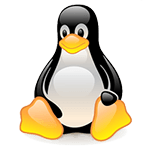LET'S Be A Technology Expert

1. To be a or two Step ahead in your team.
2. This is the era of Devops and most used tools are added into this course.
This Course is Designed for working professional
GIT:- Version control system with Git What is VCS & why it is needed Setup your own repo with git Manage your code base/source code with GIT & GITHUB OS, Virtualization & Networking Linux Quickstart Linux Introduction, Principles & Linux distro Command line utilities & Basic commands Linux Filesystem Text Editors (VIM) Filters & I/O Redirections Users & Group administration File permissions & Ownerships Sudo Software Management: Redhat & Ubuntu Useful tools: ssh, telnet, scp, rsync, disk utils, backups etc Service & Process management Virtualization: Introduction & Real time use cases Hypervisors Virtualbox Vagrant Vagrant on windows Vagrant on Linux Automating virtual machines Vagrant & Virtualbox for Lab setup Create & Manage your own Lab on any computer AWS - Introduction to Public cloud with AWS Setup your own account and Manage it IAM: Manage users, groups, roles & policies Secure your AWS account Ec2 services: Instances, AMI, EIP, Security groups, key pairs EBS: Manage Volumes for ec2, backups & restores ELB: Load balance your own website S3: Use S3 to host websites & as a centralised storage Ip Addresses & Subnet Masks VPC: Setup Highly Available & Secure network on AWS CloudWatch: Monitor you AWS setup Autoscaling with ELB jenkins Content will be added here Docker Overview Docker Architecture Images and layers Underlying technology of Docker like namespaces, cgroups etc., Docker CE Vs Docker EE and supported platforms Pulling images from Docker registry The Docker Hub Docker Engine Installation on Linux Servers (CentOS/Ubuntu) Docker commands Images, ps, pull, push, run, create, commit, attach, exec, cp, rm, rmi, login, export, import, pause, unpause, system, volumes, build, rename, save, tag, network, logs, port, search, history Docker network Container volume management Creating custom network (bridge) Building custom images using Dockerfile and through container and pushing to the Docker hub Creating containers with limited resources (CPU, memory etc.,) Building apache with mysql database storage using Dockerfile Assigning/remove multiple network to the running container. Selecting storage driver for the Docker Engine Setting limit on the resource like CPU, memory for running container Container lifecycle Kubernetes Orchestration: Difference between Docker Swarm and Kubernetes Orchestration Kubernetes overview Kubernetes Architecture Understanding the underlying concept of Kubernetes Orchestration Designing a kubernetes cluster hardware and underlying infrastructure Service running on manage node and minions Overview of pods, replication, deployment, service, endpoints Deploying the application through PODs Building multiple pods with high availability Rolling updates of the Pods with the Deployment Kubernetes underlying network like overlay network with flannel, etcd etc., Storage types in Kubernetes Upgrading kubernetes components
